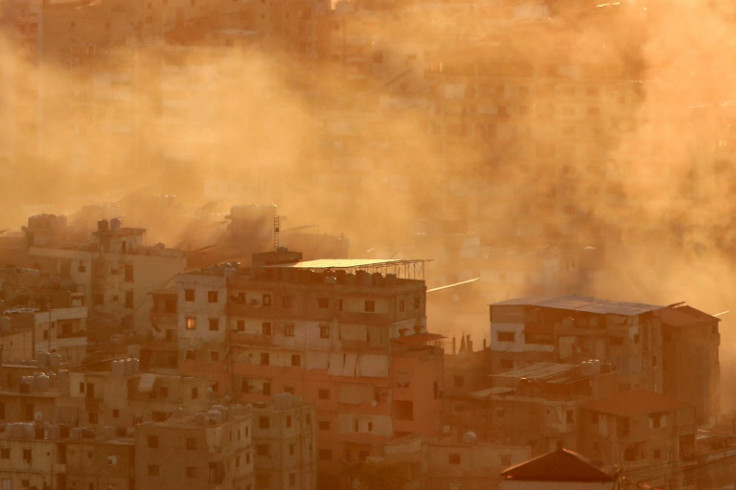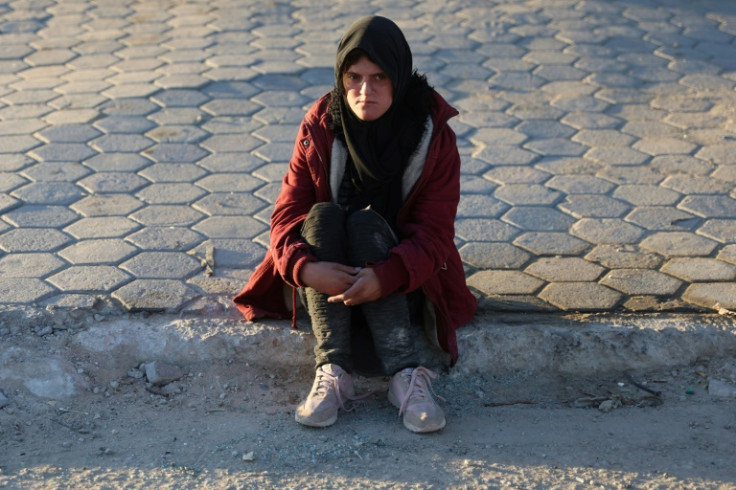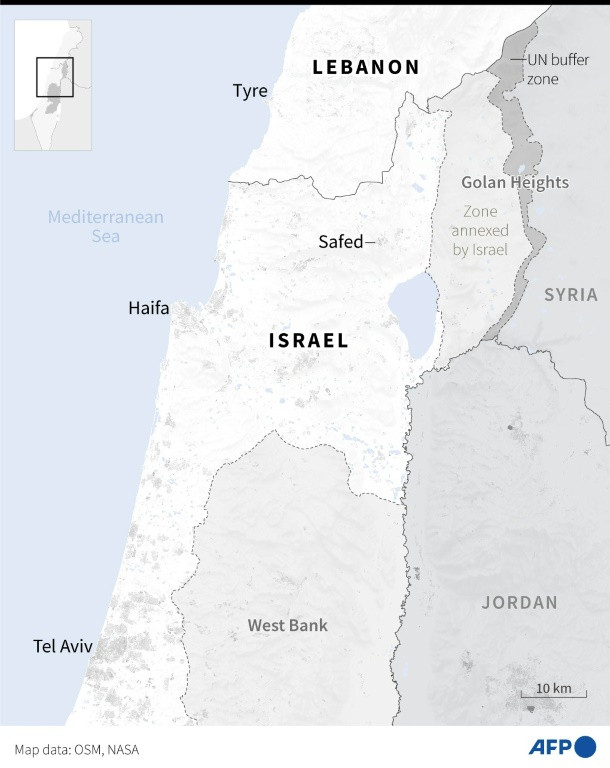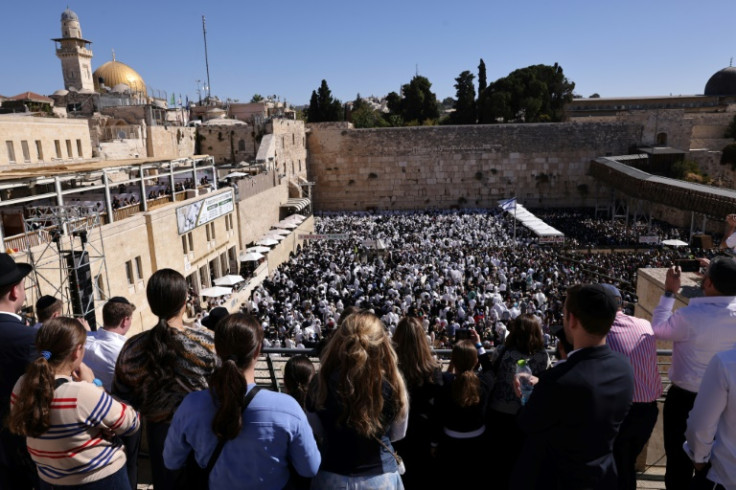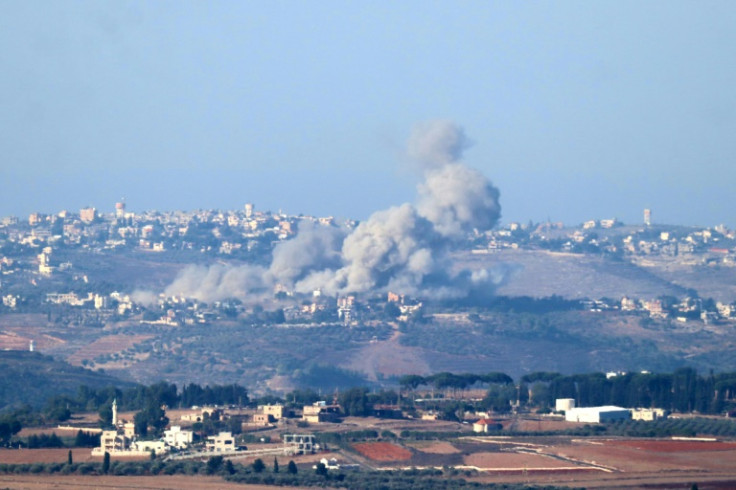
Fighting raged on two fronts Sunday as Israel targeted what it said was a Hezbollah "command centre" in the Lebanese capital, while in Gaza rescuers reported 73 people killed in a single air strike.
The strikes on Hezbollah's south Beirut stronghold came after Israeli Prime Minister Benjamin Netanyahu accused the Iran-backed group of attempting to assassinate him by targeting his residence.
It also came as Israelis marked the major week-long Jewish holiday of Sukkot, which last year saw the October 7 Hamas attack that sparked the Gaza war.
Lebanon's official National News Agency (NNA) said Israel's strikes on Beirut hit a residential building in Haret Hreik near a mosque and a hospital.
The Israeli military said it hit a Hezbollah "command centre of Hezbollah's intelligence headquarters" and underground weapons facility in Beirut, and that it also killed three Hezbollah militants in other strikes.
It later said about 70 projectiles fired from Lebanon crossed into Israel within a matter of minutes, and that it intercepted some of them.
Gaza's civil defence agency meanwhile said an Israeli air strike on a residential area killed at least 73 Palestinians in Beit Lahia in the territory's north.
"Our civil defence crews recovered 73 martyrs and a large number of wounded as a result of the Israeli air force targeting a residential area... in Beit Lahia in northern Gaza," said civil defence agency spokesman Mahmud Bassal.
The Israeli military said it struck a "Hamas terror target". It added that the toll figures given by Gaza authorities "do not align" with the information it possessed.
The military pressed its offensives in both Gaza and Lebanon, where it said its forces "struck approximately 175 terror targets".
The military said it continued to operate in northern, central and southern parts of Gaza.
"The troops eliminated dozens of terrorists during close-quarter encounters on the ground and aerial strikes" across Gaza, it said.
In southern Lebanon, NNA later said Israeli strikes had targeted dozens of locations, including the city of Nabatiyeh for the third time this week.
The military said it "struck and eliminated over 65 Hezbollah terrorists... and struck dozens of Hezbollah terror targets" in southern Lebanon.
On Saturday, Netanyahu's office said a drone was launched towards his residence in the central town of Caesarea but he and his wife were away and there were no casualties.
"The attempt by Iran's proxy Hezbollah to assassinate me and my wife today was a grave mistake," the prime minister said.
"Anyone who tries to harm Israel's citizens will pay a heavy price," he said in comments directed at Tehran and "its proxies", which include Lebanon's Hezbollah, a group Israel has been at war with since late September.
Since then, the war has killed at least 1,454 people in Lebanon, according to an AFP tally of Lebanese health ministry figures.
The Lebanese group, armed and financed by Iran, did not acknowledge the attack, but late on Saturday Iran's mission to the United Nations said "this action was taken" by Hezbollah.
Hezbollah on Saturday said it launched rocket barrages at Israel's north, where rescuers said one man was killed by shrapnel.
Hamas, Hezbollah and allied Iran-backed groups in the region have vowed to keep fighting after Israeli troops on Wednesday killed the Palestinian movement's leader Yahya Sinwar in Gaza, more than a year into the war triggered by Hamas's October 7, 2023 attack on Israel.
"Hamas is a reality in Palestine that no one can ignore, no one can destroy," Iranian Foreign Minister Abbas Araghchi said.
Israel has vowed to respond to Iran's October 1 attack, in which Tehran said it had fired 200 missiles at its arch-foe in response to the killing of an Iranian general and Hezbollah chief Hassan Nasrallah.
The war was sparked by the unprecedented Hamas attack last year that resulted in the deaths of 1,206 people, mostly civilians, according to an AFP tally of official Israeli figures.
Israel's campaign to crush Hamas and bring back the hostages has killed 42,519 people in Gaza, mostly civilians, according to data from the health ministry in the Hamas-run territory, figures the UN considers reliable.
Israel, vowing to stop Hamas militants from regrouping in northern Gaza, launched a major air and ground assault on October 6, tightening its siege on the war-battered area and sending tens of thousands of people fleeing.
Civil defence spokesman Bassal said "we have recovered more than 400 martyrs from the various targeted areas in the northern Gaza Strip", including Jabalia and its refugee camp, since Israel's operation began.
Contacted by AFP, the Israeli military said it was looking into the civil defence agency's reports from Gaza, including that an overnight air raid on Jabalia killed 33 people.
"More than a year has passed, and every day our blood is shed," displaced Gazan Nasser Shaqura said outside a hospital in Deir el-Balah, where victims of an Israeli air strike were taken.
"Every day, every hour, there is a massacre," he said. "This is what our lives have become."
